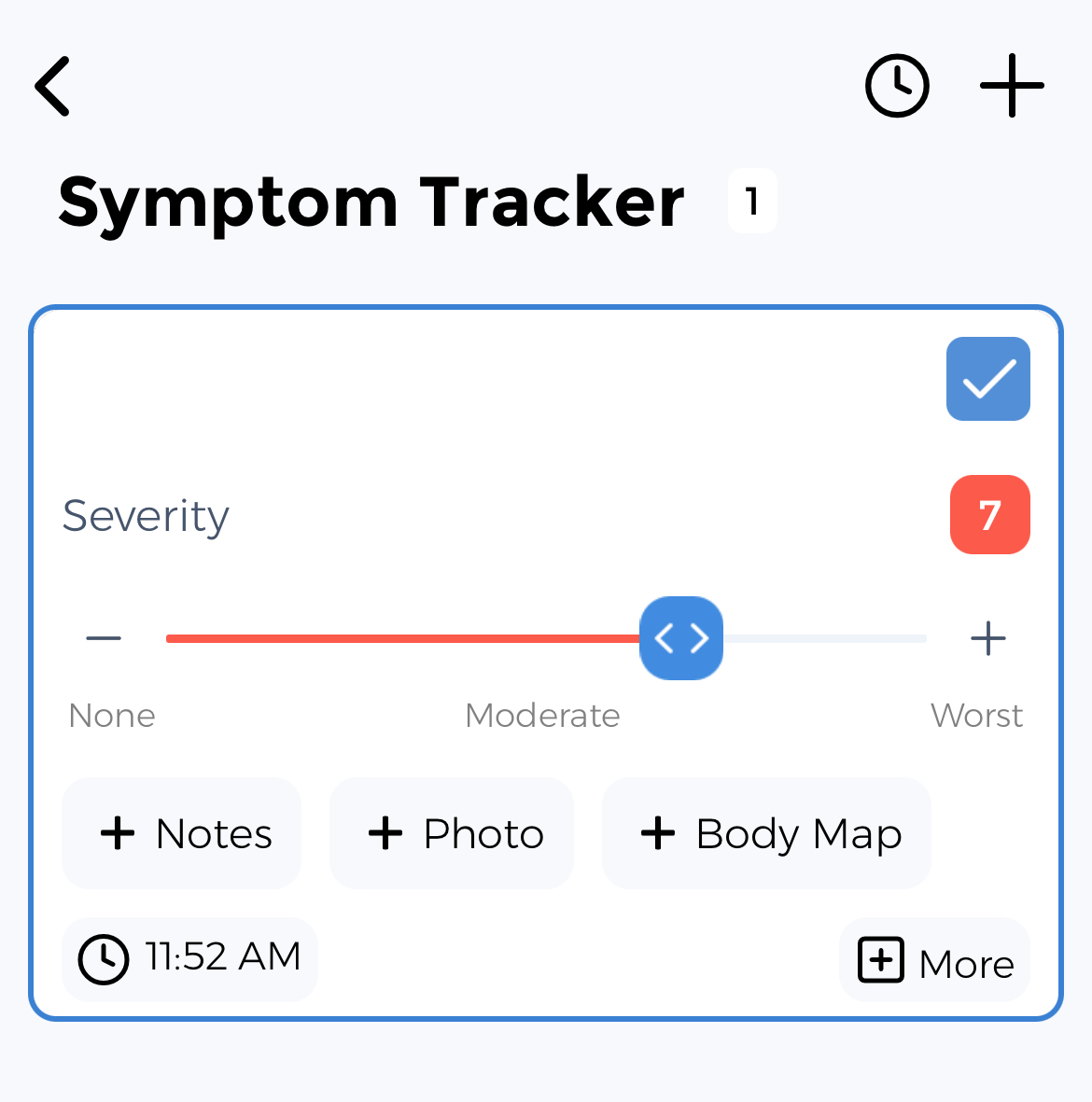Antiphospholipid Syndrome Symptom Tracker: Your Health Assistant
Living with Antiphospholipid Syndrome means dealing with blood clots, stroke, heart attack, and more. But here's the truth: Data is your most powerful tool. Every logged symptom reveals patterns—so you can take informed action.
Antiphospholipid Syndrome is an autoimmune disorder characterized by blood clots, pregnancy complications, and the presence of antiphospholipid antibodies. Tracking symptoms helps monitor disease activity and treatment effectiveness.
Key Antiphospholipid Syndrome Symptoms You Should Track
Struggling with symptoms like these? Tracking them reveals patterns, triggers, and how they impact your daily life.
Blood clots
Stroke
Heart attack
Pregnancy complications
Livedo reticularis (mottled skin)
Headaches
Cognitive dysfunction
Thrombocytopenia
Track Your Antiphospholipid Syndrome Treatments
Tracking how these common treatments affect your symptoms can help you and your healthcare provider optimize your care plan:
Our tracker helps you monitor when you take medications and how they affect your symptoms over time.
Standardized Antiphospholipid Syndrome Assessments
Complete these evidence-based assessments in the App to measure your severity and monitor your progress:
⚡ Knowledge Is Your Superpower
The difference between feeling overwhelmed by Antiphospholipid Syndrome and feeling in control starts with data. When you track your symptoms, you transform uncertainty into clarity. Every data point brings you closer to understanding your unique patterns.
It's free to try for anyone—whether you're managing your own condition, supporting a child, helping an aging parent, or assisting a partner. Our tracker adapts to your specific role in the health journey.
How the CareClinic Antiphospholipid Syndrome Symptom Tracker Adapts to Your Needs
Adults
Caregivers
Parents of Children
Young Adults
Your Complete Antiphospholipid Syndrome Management Toolkit
Uncover Patterns & Insights
Map your Antiphospholipid Syndrome symptoms like a detective solving a case.
Understand Your Medication's Impact
Turn guesswork into strategy. See how treatments affect your well-being with clear health insights.
Objectively Measure Your Progress
Use clinically validated tools to objectively measure your progress.
Other Tools You May Like...
Plus 1 more specialized tracking tools available
Access All Tracking ToolsAlso Supports Other Conditions Like
Lupus Tracker
Lupus warriors use our tracker to monitor fatigue, joint pain.
Rheumatoid Arthritis Tracker
Rheumatoid Arthritis warriors use our tracker to monitor joint pain, joint swelling.
Vasculitis Tracker
Vasculitis warriors use our tracker to monitor fatigue, fever.
Deep Vein Thrombosis Tracker
Deep Vein Thrombosis warriors use our tracker to monitor swelling, pain.
Success Stories from Our Community
"The emotional relief of understanding my Antiphospholipid Syndrome better cannot be overstated. After misdiagnosis after misdiagnosis, but once I could identify my unique triggers, my anxiety decreased dramatically."
"I'd been dealing with Antiphospholipid Syndrome for 9 years when I found this tracker. Within weeks, I confirmed that I realized that stress affected my livedo reticularis (mottled skin) more than I'd thought possible, which was revolutionary."
Take Control of Your Antiphospholipid Syndrome Journey
Transform from feeling like a passive patient to becoming an informed self-advocate. Join thousands who've discovered new insights about their condition.
Designed by people who understand the daily challenges of managing chronic conditions, we're here to support you and your ❤️ ones.
Download Your Antiphospholipid Syndrome Tracker NowYour Data is Protected
Private & Secure
HIPAA Compliant
GDPR Compliant
Never Sell Data
Your data is yours: You get full control over who can view your information. CareClinic keeps all your data secure and encrypted.
References based on studies by:

